The program will be composed by regular, special and poster sessions, and workshops. Furthermore, plenary lectures will be given by well-known scientists in the field of NeuroRehabilitation. The program will aim at enriching the knowledge of the participants, widening their point of view on specific topics related to NeuroRehabilitation, and getting in closer contact with experts in this field.
Alvaro Pascual-Leone, M.D., Ph.D.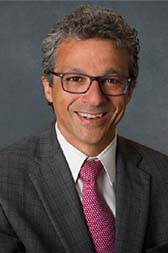
Professor in Neurology
Associate Dean for Clinical and Translational Research
Harvard Medical SchoolChief, Division of Cognitive Neurology
Director, Berenson-Allen Center for Non-Invasive Brain Stimulation
Beth Israel Deaconess Medical Center
Boston
Alvaro Pascual-Leone, MD, PhD, is Professor of Neurology and an Associate Dean for Clinical and Translational Research at Harvard Medical School. He serves as Chief for the Division of Cognitive Neurology and the Director of the Berenson-Allen Center for Noninvasive Brain Stimulation at Beth Israel Deaconess Medical Center.
Dr. Pascual-Leone is a world leader in the field of noninvasive brain stimulation where his contributions span from technology development, through basic neurobiologic insights from animal studies and modeling approaches, to human proof-of-principle and multicenter clinical trials. His research has been fundamental in establishing the field of therapeutic brain stimulation. His work has provided evidence for the efficacy of noninvasive brain stimulation in treating various neurologic and psychiatric conditions, including epilepsy, stroke, Parkinson disease, chronic pain, autism, and drug-resistant depression.
Dr. Pascual-Leone has authored more than 600 scientific papers as well as several books, and is listed inventor in several patents. His work is highly regarded for its innovation and quality and is highly cited.
Dr. Pascual-Leone is the recipient of several international honors and awards, including the Ramón y Cajal Award in Neuroscience (Spain), the Norman Geschwind Prize in Behavioral Neurology from the American Academy of Neurology, the Friedrich Wilhelm Bessel Research Award from the Alexander von Humboldt Foundation (Germany), and the Jean-Louis Signoret Prize from the Ipsen Foundation (France). He is an elected member of the Spanish Royal Academy of Science (Farmacia). His work also has wide general public appeal and outreach through dissemination in articles in the lay press (Time Magazine, Newsweek, New Scientist, National Geographic) and documentaries on television and radio (Scientific American, 60 minutes, CNN, BBC, Discovery, National Geographic, etc.).
Marco Molinari, M.D., Ph.D.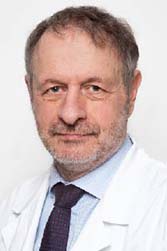
Director Neurological and Spinal Cord Injury Rehabilitation A.
Director Clinical Translational Research.
Head Neuro-Robot Rehabilitation Lab
IRCCS Fondazione S. Lucia
Since obtaining his MD degree, Dr. Molinari has been involved in diagnosis and treatment of Neurological diseases with special focus on stroke patients and their rehabilitation. 1984/1998 Neurological ward and Neuropsychology unit at the Institute of Neurology Catholic University Rome. EEG diagnosis, Clinical Neuropsychology. 1998/present Hospital and Research Center IRCCS Santa Lucia Foundation in Roma: Department Director UNIT A of Neurorehabilitation (Personnel: 6MDs,1 psychologist, 26 nurses, 14 physiotherapists, 7 researchers) : Neurorehabilitation ward (30 beds), Spinal cord rehab unit (23 beds), outpatient rehabilitation (10 beds). Associated research labs: Ataxia Lab (Experimental Neuropsychology), CaRMA Lab (Clinical and Research Movement Analyses) and Experimental Neurorehabilitation Lab (Animal Models of CNS damage/ Functional recovery). Clinical duties: Neurological rehabilitation for in and out-patients. Main pathologies: stroke and spinal cord injuries. Research fields: neurological rehabilitation, Spinal cord Injury, Stroke, Experimental models of neurodegeneration, Cerebellar pathology and neurophysiology, Technological and neuroscience based applications to neurological rehabilitation.
Dario Farina, Ph.D.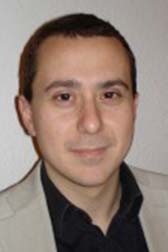
Department of Neurorehabilitation Engineering
Bernstein Focus Neurotechnology (BFNT) Göttingen
Bernstein Center for Computational Neuroscience Göttingen
University Medical Center Göttingen
Georg-August University, Germany
After a period (2002-2004) as Research Assistant Professor at Politecnico di Torino, he moved to Aalborg University, Denmark, where he was an Associate Professor in Biomedical Engineering (2004-2008) and then Full Professor in Motor Control and Biomedical Signal Processing (2008-2010). In the latter period, he has been the Head of the Research Group on Neural Engineering and Neurophysiology of Movement at Aalborg University. In 2010 he was appointed Full Professor and Founding Chair of the Department of Neurorehabilitation Engineering at the University Medical Center Göttingen, Georg-August University, Germany, within the Bernstein Center for Computational Neuroscience Göttingen. He is currently the Chair for Neuroinformatics of the Bernstein Focus Neurotechnology of Göttingen. His research spans engineering, physiology, neuroscience, and clinical sciences in a translational approach and focuses on the study of neural control of movement and on methods to replace, restore, and modulate lost or impaired motor functions.
John B. Troy, Ph.D.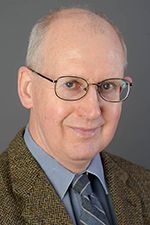
Professor of Biomedical Engineering
Biomedical Engineering Department
Northwestern University
John B. Troy, Professor of Biomedical Engineering at Northwestern University, has a B.S. (1st class honors) in Biologoy with Physics from the University of London, King’s College, a B.A. (2nd class honors) in Politics from the University of Reading and a D.Phil. from the University of Sussex, all in the U.K. His research is within the broad area of Neural Engineering with a focus on signal processing within the nervous system and the development of technology for neuroscience research and neuroprosthetics. In recent years he has applied nanotechnology to his work on developing tools for neuroscience and neuroprosthetics research. Funding of his research has come from the NIH, the NSF, NATO, the Qatar National Research Fund, the Whitaker Foundation and industry. He has received an Alfred P. Sloan Fellowship and is a Fellow of the AIMBE. He has served as Chair of the Council of Chairs of Biomedical Engineering and Bioengineering Programs in the U.S.A.
Hitoshi Hirata, M.D. and PhD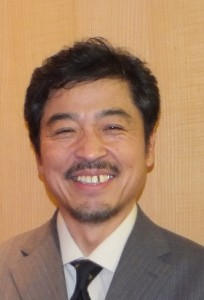
Professor of Department of Hand Surgery
Professor of Innovative Research Center for Preventive Medical Engineering
Department of Hand Surgery
Nagoya University Graduate School of Medicine
Hitoshi Hirata, MD, PhD, is professor in the Graduate School of Medicine and holds a joint appointment in the Innovative Research Center for Preventive Medical Engineering, Nagoya University, Japan. He serves as Director of the Department of Hand Surgery, Nagoya University School of Medicine and Nagoya University Hospital. Dr. Hirata received his medical degree in 1982 from Mie University School of Medicine and has been a visiting clinician at the Mayo Clinic. He is Congress President of the Japanese Society for Surgery of the Hand 60th Annual Meeting to be held in Nagoya from April 26–29, 2017 and chairs the International Symposium on Intelligent Functional Reconstruction of the Hand that will be convened simultaneously. Professor Hirata’s research is within the broad area of functional reconstructive surgery with a focus on peripheral nerve surgery and regenerative medicine. He collaborates with researchers in robotics, neuroscience, rehabilitation medicine, plastic surgery and allied fields on the development of technology for stem cell-based functional reconstruction and neuroprosthetics and has worked extensively with the Japan Agency for Medical Research and Development, the Japan Society for the Promotion of Science, and the Japanese Ministry of Health, Labour and Welfare.
Jonathan Wolpaw, M.D. and PhD
Laboratory Chief and Professor.
Wadsworth Center.
New York State Dept of Health and State. Univ of New York
Over the past 30 years, Dr. Wolpaw’s laboratory has developed and used operant conditioning of spinal reflexes as a model for defining the plasticity underlying learning. His group’s recent work shows that reflex conditioning can guide spinal cord plasticity in spinal cord-injured rats and can thereby improve locomotion. Clinical researchers are now finding evidence that such conditioning can improve locomotion in people with partial spinal cord injuries. For the past 20 years, Dr. Wolpaw’s laboratory has also developed EEG-based brain-computer interface (BCI) technologies to provide non-muscular communication and control to people who are paralyzed. Most recently, his group has begun to provide BCI systems to severely disabled people for daily use in their homes.
John C. Rothwell, M.D. and PhD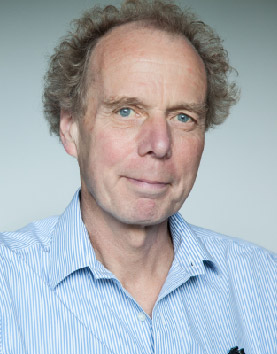
Physiology and Pathophysiology of Human Motor Control
Sobell Department of Motor Neuroscience and Movement Disorders
Institute of Neurology
University College London
Prof. Rothwell is full professor in the “Sobell Department of Motor Neuroscience and Movement Disorders” and head of the “Physiology and Pathophysiology of Human Motor Control” laboratory. The Sobell department provides a world-class base for neurophysiological research into movement control and its disorders. Rothwell’s laboratory has a leading position in the investigation of the human motor physiology. His main area of interest is transcranial magnetic stimulation and motor control and he has pioneered the use of the paired-pulse stimulation technique for interhemispheric studies. He has written over 600 papers and numerous book chapters.
X. Navarro, M.D. and PhD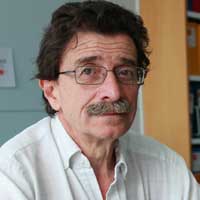
Department of Cellular Biology, Physiology and Immunology
Institut de Neurociències
Faculty of Medicine
Universitat Autònoma de Barcelona (UAB)
Xavier Navarro received the MD degree in 1978 and the PhD degree in 1985 both from the Universitat Autònoma de Barcelona (UAB). He completed his specialty training in Neurology at the University of Barcelona, and in Neurophysiology at the University of Minnesota. He was Assistant Professor of the Department of Neurology of the University of Minnesota (1986-1988). He returned in 1988 to the UAB as Associate Professor in the Department of Cell Biology and Physiology, where he is currently full Professor of Physiology from 1999. He is the director of the Department of Cell Biology, Physiology and Immunology since 2010. He was a founder of the Institute of Neurosciences of the UAB. He also serves as scientific advisor of the Institut Guttmann of Neurorehabilitation.
He has published more than 300 papers in refereed journals and books, with an H index of 44, and directed 22 PhD theses. He has been member of the editorial boards of the journals: Restorative Neurology and Neuroscience, Journal of the Peripheral Nervous System, Muscle and Nerve, Frontiers in Neuroengineering. He has received the awards “Ciutat de Barcelona” in 1995, “Josep Trueta” in 2000, and ASPAYM award in 2009 for his scientific research activities.








